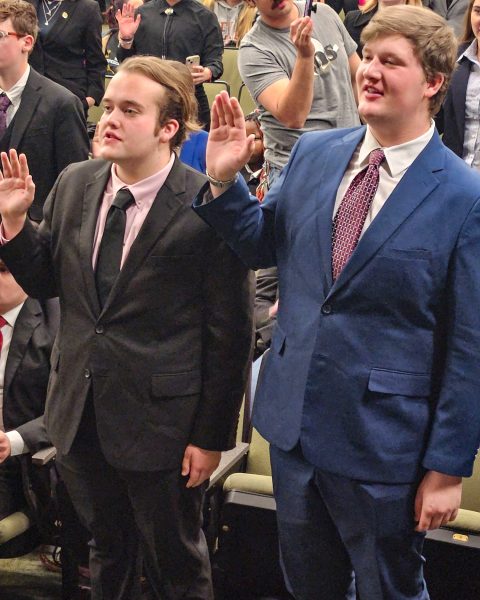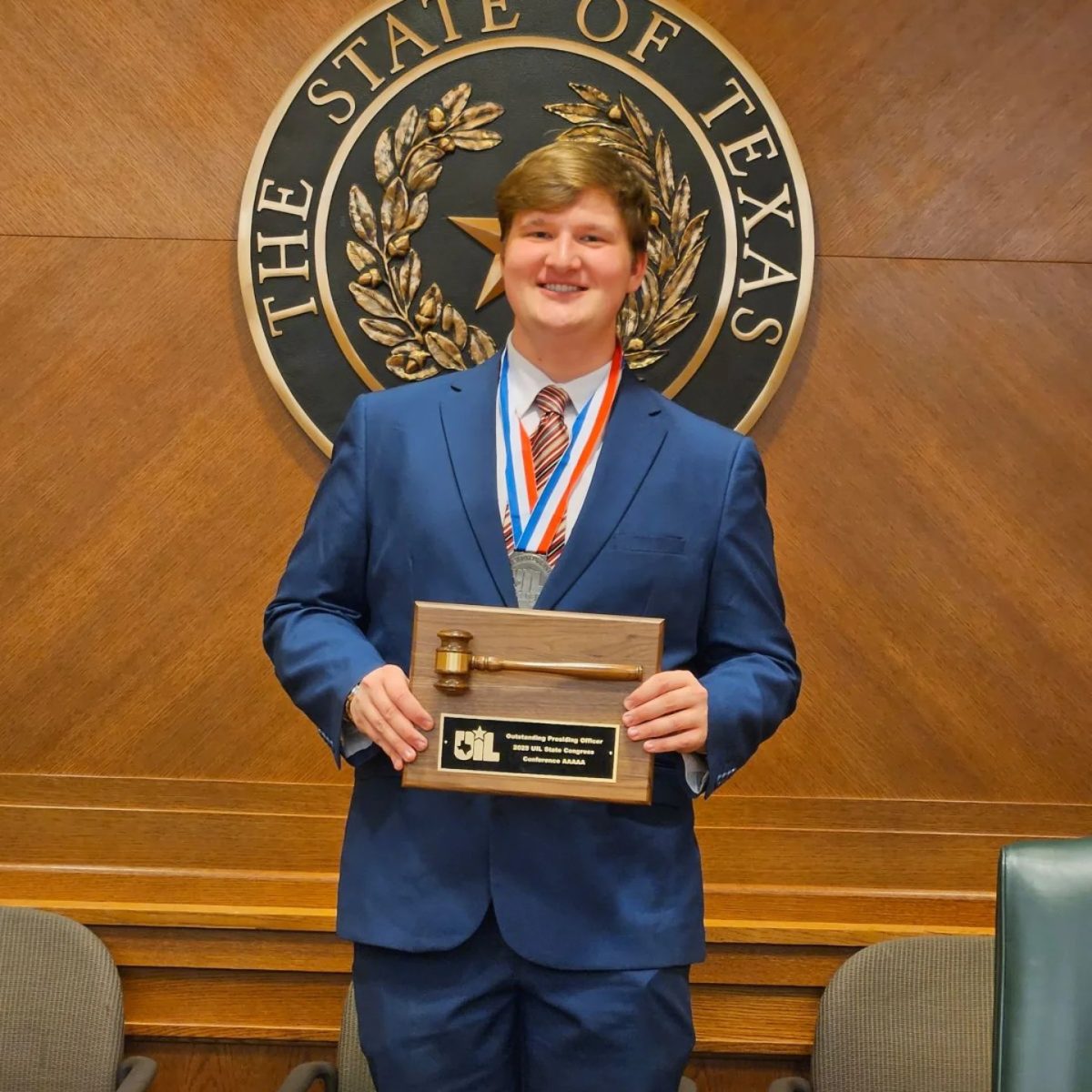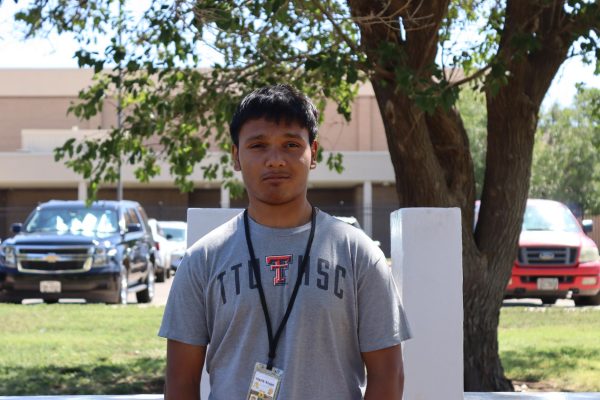Junior Hayden Brillhart and Senior Aidan Anderson, reached the Finals at the UIL State Congressional Debate competition where Brillhart placed 2nd.
The two students took a trip to Austin to compete from Jan. 6-10. Even with second-place finish at the State UIL debate tournament, Brillhart values how much better the entire debate team performed this year.
“What’s most rewarding is how we’ve done this season,” Brillhart said. “I thought the experience was great because it allowed me to practice leadership skills, which we do not always have the opportunities to practice.”
Brillhart also discussed the competition he faced, applauding the skills of his opponents while also forming friendships with them. He emphasized how these students serve as both competitors and companions.
“I thought the competition was very hard, I made a conscious effort to get to know the kids I competed against, keeping tabs on them throughout the year and befriending them,” Brillhart said.
A major part of debate involves analysis and research required beforehand to successfully speak on the chosen topic. The preparation, analogies, introductions and statistics contribute to making a speech cohesive and persuasive. However, mental preparation plays a role as well.
“I prepare by reading the legislation thoroughly, and preparing arguments for the topics on both sides of the debate when I can,” Anderson said. “Aside from the speech element, I prepare by just being confident, not having huge expectations and going in to learn and have fun, rather than win every time.”
Four years of competition provided Anderson with extensive Congressional Debate knowledge.
“Congressional Debate is a competition composed of student legislators who debate over passing or failing legislation proposed by them and their peers, the UIL level makes the students go through various stages of competing,” Anderson said. “First they must qualify at their UIL regional competition. If they qualify then they compete in a preliminary round at the University of Texas at Austin. Then advancing competitors from the preliminary round gather in the last stage at the Texas State Capitol for the state finals.”

Other than the two finalists, other students from the Sandstorm team competed at the district level. Hazik Aiyan, Veditha Chelikani, Jeremy Hart and Bakhtawar Parvez performed competitively at the event.
“I love competing in Congress,” Aiyan said. “It is much more enjoyable to have a more natural debate.”
Congress presents a unique event, blending elements of debate, public speaking and mock simulation. It cultivates various skills that help students succeed at the next level while also fostering friendships and lasting connections.
“How Congress is set up challenges me to be concise, analyze multiple perspectives and respond to opposing views,” Parvez said. “I chose Congress…because of its capacity to sharpen my critical thinking skills. The best part about is seeing other competitors grow. Throughout my speech career, I have created valuable friendships. [At UIL] it was great that our school took four of the top six places.”
Like the real Congress, these students participate in lawmaking, debating and simulating the legislative process.
“First, they write legislation, either a bill or a resolution,” Jeremy Hart said. “A bill is a piece of law that, if passed, will be enforced. A resolution is a document that either amends the Constitution, or expresses the sentiments of the legislative body. These documents are submitted for a board to select from. The few selected then form the docket for the debate.”
The competition replicates Congress so well that it even includes special roles similar to those in real-life Congress.
“Aside from debating the legislation, one person has to act as the Presiding Officer, similar to the Speaker of the House,” Anderson said. “This person guides debate and motions throughout the usually three hour long session. Members can make motions to end debate and vote on legislation, to hold a recess or to make parliamentary inquiries.”
UIL devotes countless hours to selecting qualified and talented judges, including teachers and debate coaches.
“A panel of judges ranks the debating members, and the Presiding Officer, on their performances,” Anderson said. “These judges decide which few members make it to later rounds, typically through cumulative ranks. An average is taken of their rankings which decides finalists and winners.”
After spending many years competing, Anderson reflected on his best experiences.
“I loved every second of competition, not only because of winning, but because of the many long-time friendships that I forged through these experiences,” Anderson said. “I’ll miss those routine Saturday bus rides, and three hour Congress sessions with my best friends, and I’m also eternally grateful for the lessons and skills this competition and my coach provided me.”


